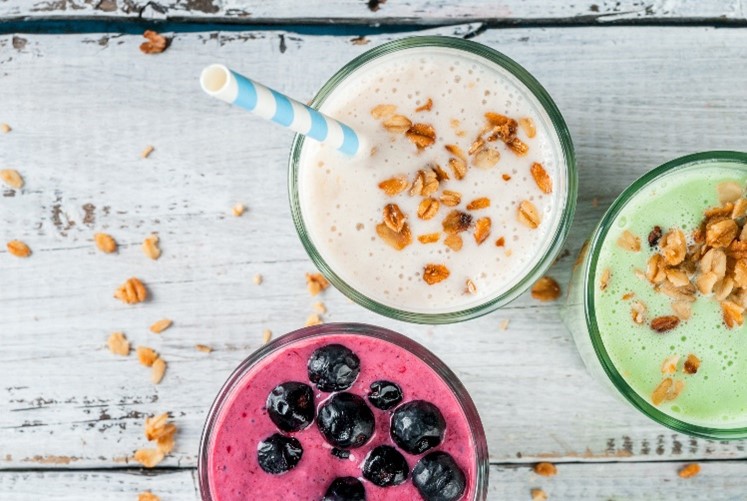Derived from the Turkish word, keyif, kefir means “good feeling.” Not only do most people find kefir to be great tasting, the potential health benefits of adding kefir to your diet can be significant. Here are a few:
- It is nutrient dense, delivering vitamins A, B, D, K and minerals calcium and magnesium. Also, nine grams of protein and only 104 calories per cup for full fat, homemade kefir!
- It has more strains of probiotics than yogurt – up to 60 strains of bacteria & yeast which help restore levels of healthy bacteria in the gut.
- Antibacterial – it protects against infections.
- It can help regulate blood sugar and has cardiovascular benefits.
- Great for bone health. Full fat kefir contains vitamin K2 which is important for calcium metabolism and the protein, magnesium & phosphorous are great for muscle health.
- Believed to reduce tumor growth by stimulating the immune system.
- It’s low in lactose as lactose is consumed by the bacteria during the fermentation process. Some sources say it is reduced by as much as 99%, however, always check with your health care team if you have lactose intolerance issues.
- It is available at most grocery stores, and it is easy to make at home.
How do you get it into your diet?
- Purchase it premade. Just be a good label reader and avoid added sugars and thickeners.
- Make it from a starter, such as Cultures for Health Kefir Starter https://culturesforhealth.com/collections/cultured-favorites . This is a freeze dried powder you simply stir into full fat raw or pasteurized milk and let the covered jar rest on your counter out of direct sun for 24 hours. A quarter cup of the new fermentation can be reserved to start another new batch of kefir. Full directions are included with purchase. This is a great place to start when new to making kefir.
- Ready for the full experience? Purchase live grains online, refresh them, and then make an unlimited amount of kefir as long as you keep the grains happy. I like and bought my organic grains at fusionteas.com/fresh-milk-kefir-grains-organic/ The owner also sends a comprehensive e-book AND he is available by email or text to offer exceptional customer service support.
Once you get the hang of it, there are dozens of ways to blend kefir into smoothies, salad dressings, dips, make it into a lovely “cream cheese” with nothing more than a strainer and a coffee filter, and more!


If purchasing it premade , what is the sugar content (non-added) and which thickeners should be avoided . Thanks !
Hi Patti!
Thank you for your questions. My best advice is to be a label reader as every brand may be different. I can only respond to the one that I purchased for demonstration purposes. It is Lifeway Kefir, Plain, Unsweetened 1% milkfat. It states it has 9 grams of sugar in one serving/cup. Regarding thickeners, on my personal quest to significantly reduce ultra processed foods and additives, I tend to follow Michael Pollan, author of many books on the subject of food, advice. “Avoid food products containing ingredients that no ordinary human keeps in their pantry.” It’s also important to just know how your unique body responds to ingredients and different foods.
Hi, Susan. I didn’t quite understand your response to Patti. Is Lifeway brand one you’d recommend? Or is 9 grams of sugar too much? (I’ll likely not be reading labels till next year; others are shopping for me right now because I had an accident and won’t be getting out much,)
Hi Martha, that’s great question. And the answer is….it depends. The USDA published Dietary Guidelines for Americans 2020-2025 states that one should limit sugar intake to less than 10% of the overall caloric intake. That’s no more than 12 teaspoons or 48 grams of sugar if following a 2,000-calorie-per-day diet.
As I don’t use premade kefir’s I have little direct experience with them, however, I did purchase one to taste it and compare it to homemade. It tasted great. I also checked with Consumer Labs and they did test Lifeway Kefir in 2015 and reported it to be “teeming with live organisms, ranging from 150 billion to 950 billion per cup — far more than found in a serving of most probiotic supplements.”